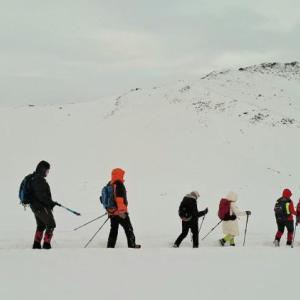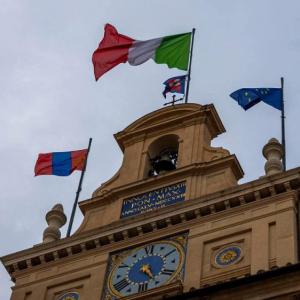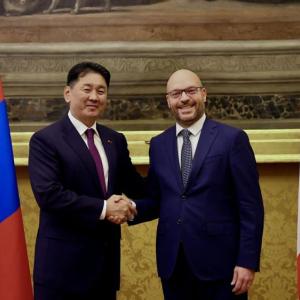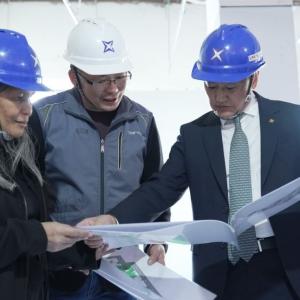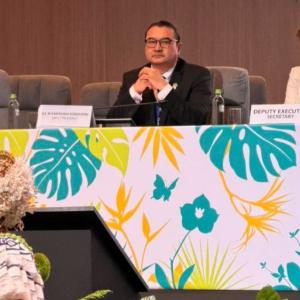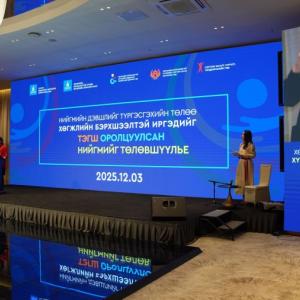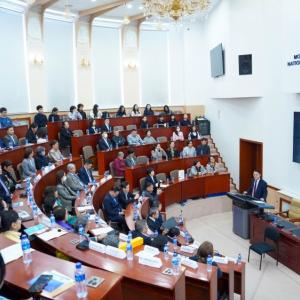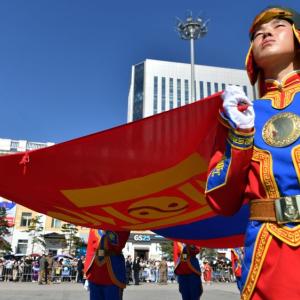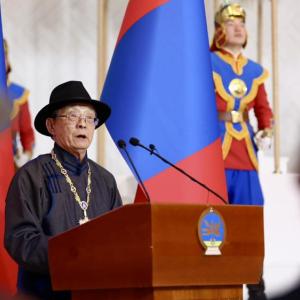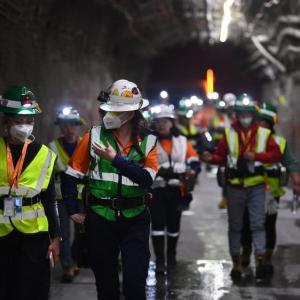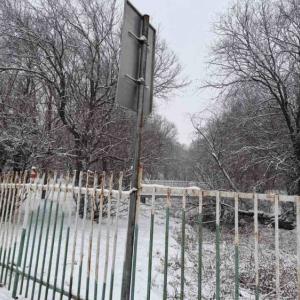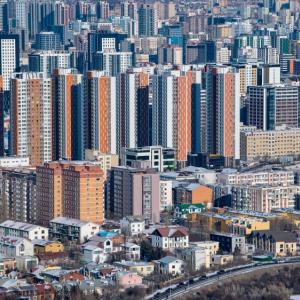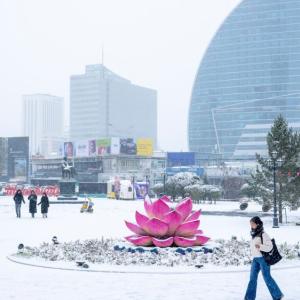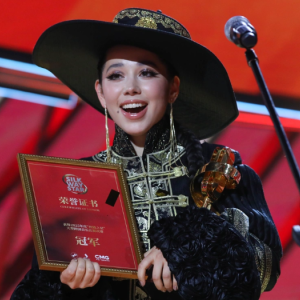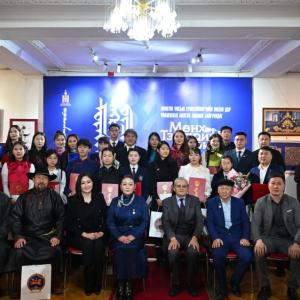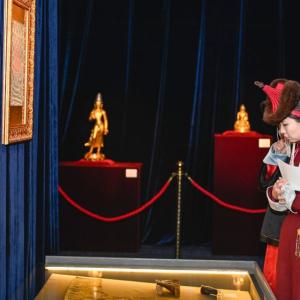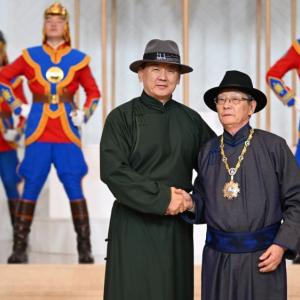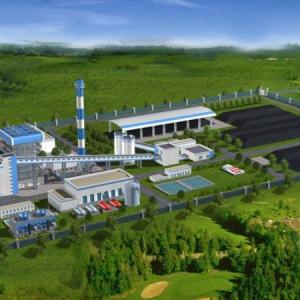Prime Minister’s Visit: Official Documents Signed During the Visit
Politics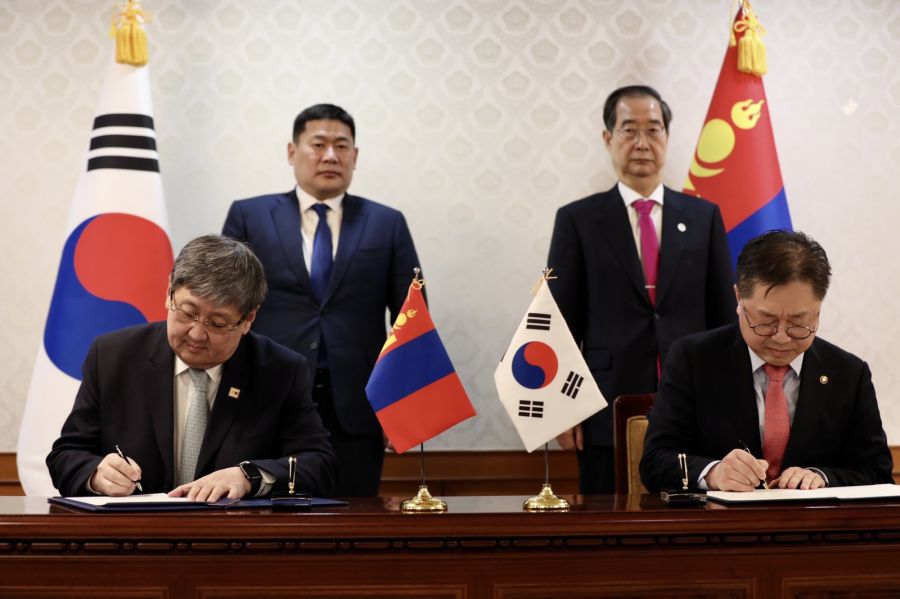
Ulaanbaatar, February 15, 2023
/MONTSAME/. During the official visit of
Prime Minister of Mongolia L. Oyun-Erdene to the Republic of Korea, the following
documents were signed in the presence of Prime Minister of Mongolia L.
Oyun-Erdene and the Prime Minister of the Republic of Korea Han Duck-soo. These
are,
1. Deputy Prime Minister and Minister of Economy and
Development of Mongolia Ch. Khurelbaatar and Vice Minister of trade, industry, and energy of the Republic of Korea Park
Il-joon signed the “Joint
Statement to Start of Negotiations on the Draft Agreement on Economic Partnership
between Mongolia and the Republic of Korea”.
The joint research aimed
at establishing the Agreement on Economic Partnership was completed in 2021 and
the negotiations will be launched upon the agreement of the tasks and
completion of the internal procedures.
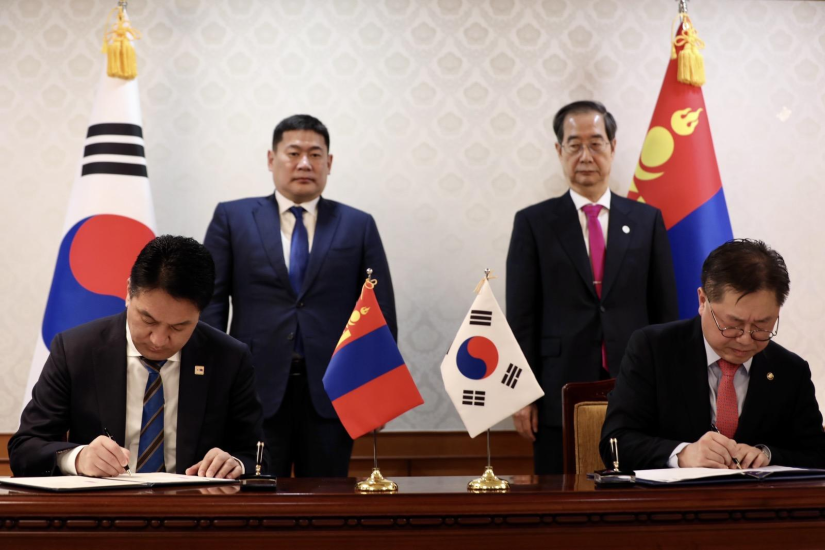
2. Minister of Mining and Heavy Industry of Mongolia J.
Ganbaatar and Vice Minister of Trade, Industry and Energy of the Republic of
Korea Park Il-joon signed the "Memorandum of Understanding between the
Ministry of Mining and Heavy Industry of Mongolia and the Ministry of Trade,
Industry, and Energy of the Republic of Korea on Cooperation in the Supply
Chain of Rare Metals”.
Upon the establishment of the Memorandum of Understanding, a research center will be built to conduct joint research to create a rare earth metals supply chain, exchange experts, and implement joint projects in trade, investment, and rare earth metals fields.
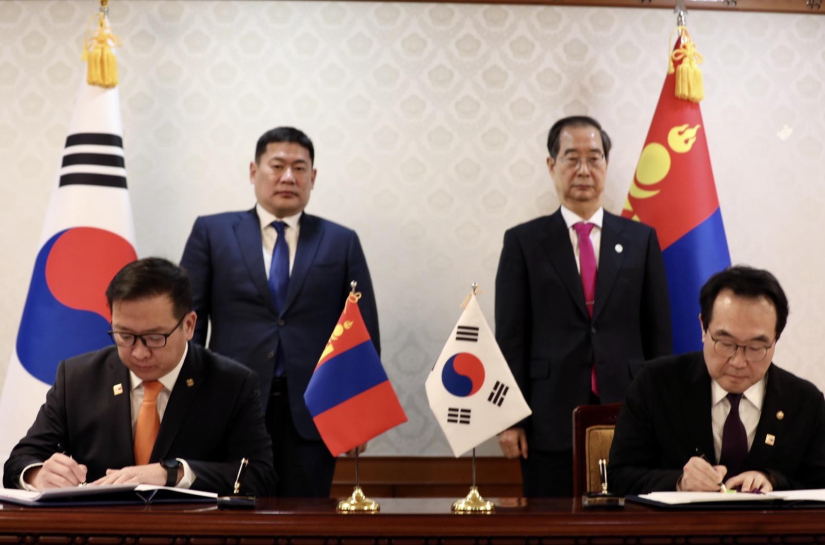
3. Minister of Environment
and Tourism of Mongolia B. Bat-Erdene and Vice Minister of Foreign Affairs of
the Republic of Korea Lee Do-hoon
signed the "Agreement between the Government of
Mongolia and the Government of the Republic of Korea on Cooperation in
Mitigating Climate Change".
According to the Agreement, the two sides will set up a new committee on climate change and cooperate in reducing greenhouse gas, building adaptive capacity to climate change, and embracing the low-carbon and climate change-resilient sustainable development. In addition, the agreement is significant for the successful implementation of the “One Billion Trees” national campaign initiated by the President of Mongolia.

4. Minister of
Foreign Affairs of Mongolia B. Battsetseg and Vice Minister of Foreign Affairs of
the Republic of Korea Lee Do-hoon signed the “Agreement between the Government
of Mongolia and the Government of the Republic of Korea on the Mutual Protection
of Classified Military Information”.
In accordance with the relevant laws and regulations, South Korea and Mongolia shall undertake activities related to the mutual protection of classified military information within the framework of cooperation in the defense sector. It is important to increase the capacity of employees in the defense sector.
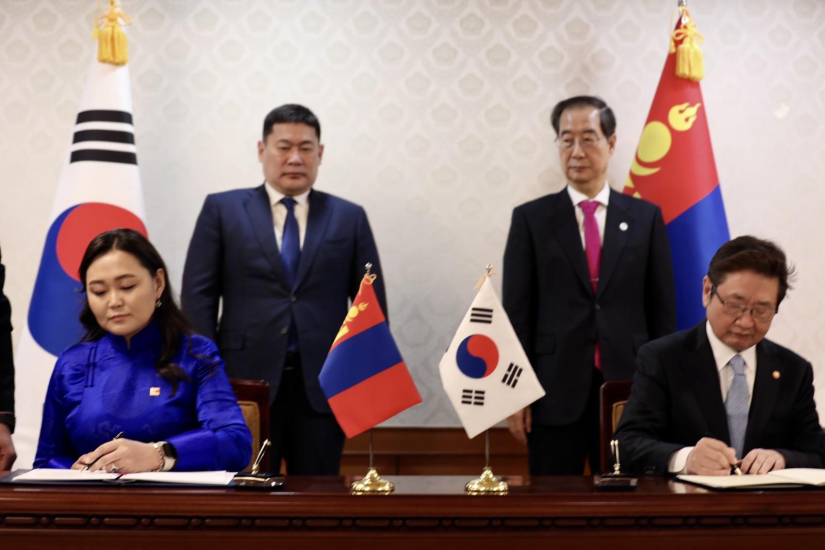
5. Minister of Culture of
Mongolia Ch. Nomin and Ministry of Culture, Sports and Tourism of the Republic
of Korea Park Bo-gyoon signed the “2023-2026 Exchange program between the
Ministry of Culture of Mongolia and the Ministry of Culture, Sports and Tourism
of the Republic of Korea”.
The program will include
mutual participation of artists and representatives in international art
festivals, symposiums, seminars, and other events organized in both countries,
as well as mutual training and exchange of experts and artists in the fields of
culture, art, film production, media, and music.

6. Minister of Construction
and Urban Development of Mongolia Ts. Davaasuren and the Director of the
National Agency for Administrative City Construction of the Republic of Korea Lee
Sang Rey signed the “Memorandum of Understanding between the Ministry of
Construction and Urban Development of Mongolia and the National Agency for Administrative
City Construction of the Republic of Korea on Cooperation in the Field of Urban
Development”.
South Korea and Mongolia
will collaborate to develop a new smart city in Orkhon Valley, and Khushig
Valley, in accordance with the objectives of Mongolia's long-term development
policies "Vision-2050" and "New Revival Policy," in order
to create an appropriate system of population localization and settlement, to
ensure balanced development of urban and rural areas, and to support history,
culture, and tourism.
 Ulaanbaatar
Ulaanbaatar






